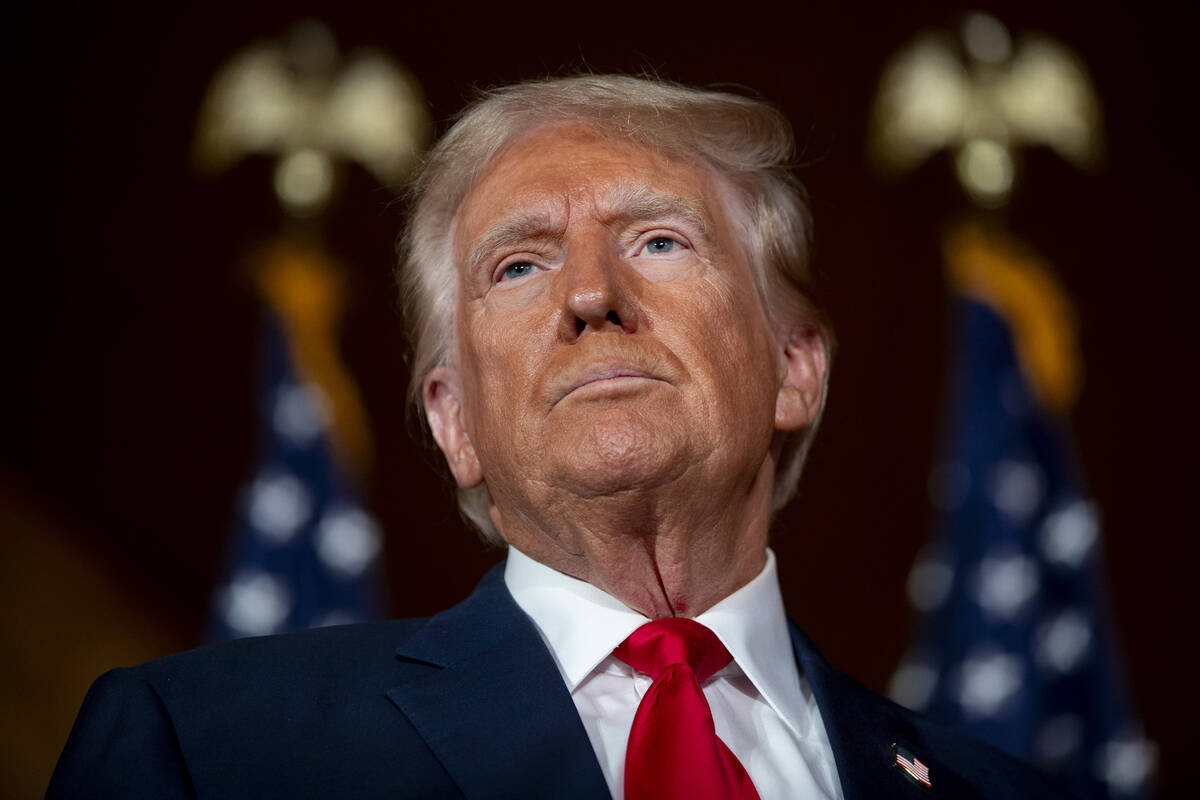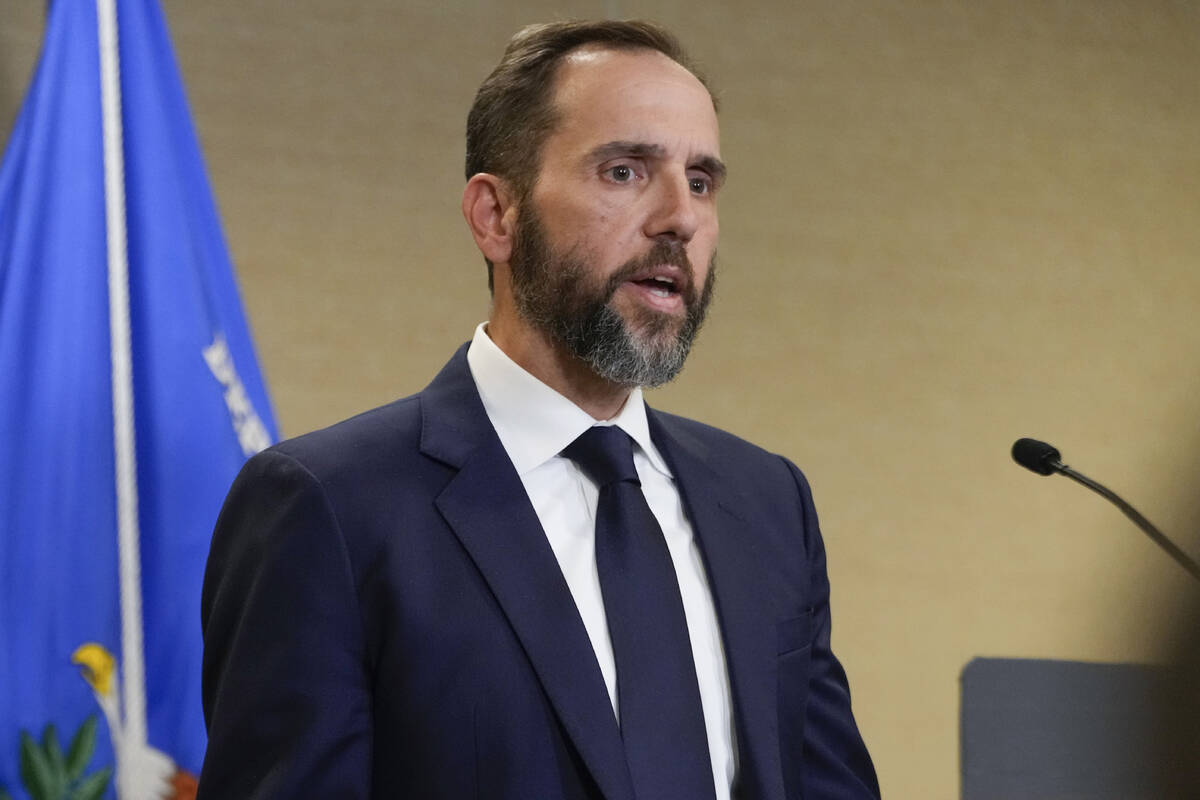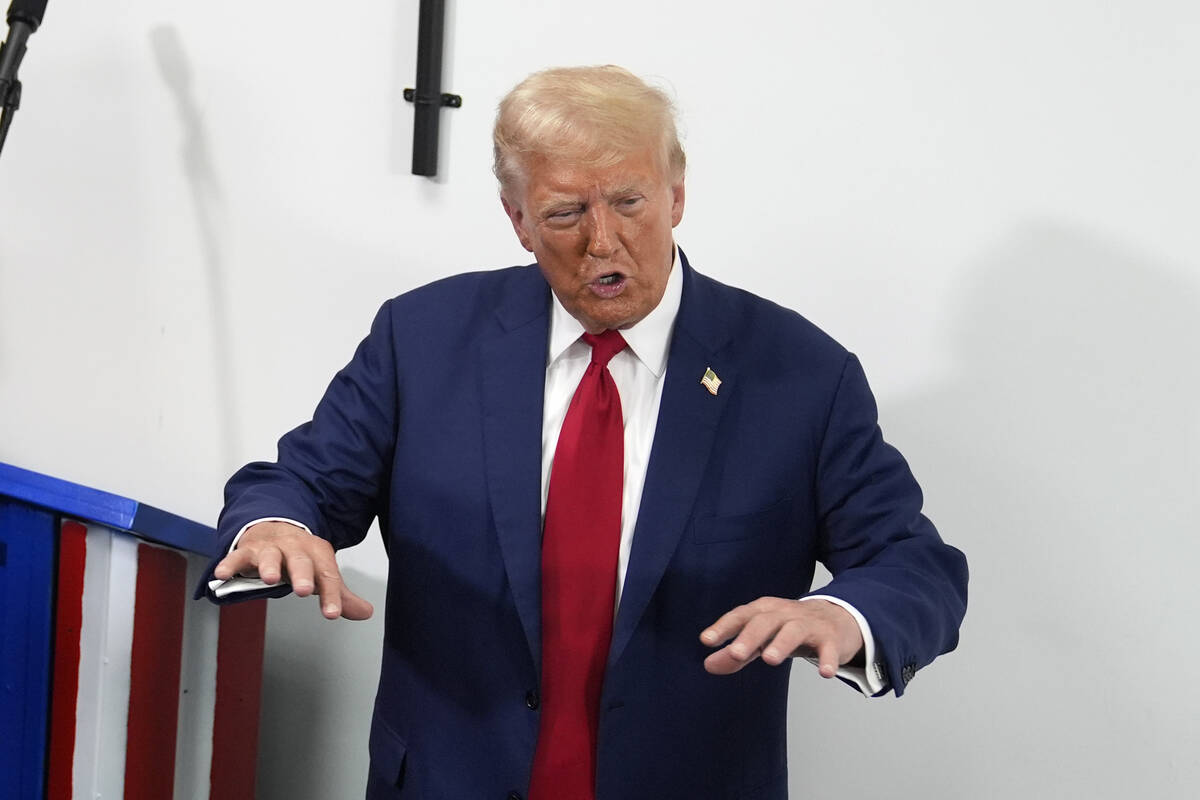Trump faces new federal indictment in election interference case
WASHINGTON — Special counsel Jack Smith filed a new indictment Tuesday against Donald Trump over his efforts to undo the 2020 presidential election that keeps the same criminal charges but narrows the allegations against him following a Supreme Court opinion that conferred broad immunity on former presidents.
The new indictment removes a section of the indictment that had accused Trump of trying to use the law enforcement powers of the Justice Department to overturn his election loss, an area of conduct for which the Supreme Court, in a 6-3 opinion last month, said that Trump was absolutely immune from prosecution.
The stripped-down criminal case represents a first effort by prosecutors to comply with a Supreme Court opinion likely to result in a significant revision of the allegations against Trump over his efforts to block the peaceful transfer of power. It was filed three days ahead of a deadline for prosecutors and defense lawyers to tell the judge in the case how they wanted to proceed in light of that opinion, which said former presidents are presumptively immune from prosecution for official White House acts.
The two sides will be back in court for a status hearing next week, the first such appearance in months given that the case had been effectively frozen since last December as Trump’s immunity appeal worked its way through the justice system.
The special counsel’s office said the updated indictment, filed in federal court in Washington, was issued by a grand jury that had not previously heard evidence in the case. It said in a statement that the indictment “reflects the Government’s efforts to respect and implement the Supreme Court’s holdings and remand instructions.”
DOJ-Trump dealings focus of changes
The central revision in the updated criminal case concerns Trump’s dealings with the Justice Department.
The original indictment included allegations that Trump tried to enlist the department in his failed effort to undo his election loss, including by conducting sham investigations and telling states — incorrectly — that significant fraud had been detected.
It detailed how Jeffrey Clark, a top official in the Trump Justice Department, wanted to send a letter to elected officials in certain states falsely claiming that the department had “identified significant concerns that may have impacted the outcome of the election” and had asked top department officials to sign it, but they refused.
Clark’s support for Trump’s election fraud claims led Trump to openly contemplate naming him as acting attorney general in place of Jeffrey Rosen, who led the department in the final weeks of the Trump administration. Trump ultimately relented in that idea “when he was told it would result in mass resignations at the Justice Department,” according to the original indictment. Rosen remained on as acting attorney general through the end of Trump’s tenure
The new case no longer references Clark as a co-conspirator. Trump’s co-conspirators were not named in either indictment, but they have been identified through public records and other means.
In its opinion, the Supreme Court held that a president’s interactions with the Justice Department constitute official acts for which he is entitled to immunity, effectively stripping those allegations from the case.
“As we have explained, the President’s power to remove ‘executive officers of the United States whom he has appointed’ may not be regulated by Congress or reviewed by the courts,” Chief Justice John Roberts wrote for the court.
The justices returned other core allegations in the case to U.S. District Judge Tanya Chutkan, the trial judge presiding over the case, to determine what constitutes an official act protected from prosecution — and what does not.
The new indictment still includes one of the more stunning allegations brought by Smith — that Trump participated in a scheme orchestrated by allies to enlist slates of fraudulent electors in battleground states won by Democrat Joe Biden who would falsely attest that Trump had won in those states.
Keeps Pence pressure allegations
It also retains allegations that Trump sought to pressure Vice President Mike Pence to reject legitimate electoral votes, and that Trump and his allies exploited the chaos at the Capitol on Jan. 6 in an attempt to further delay the certification of Biden’s victory.
Roberts wrote in his majority opinion that the interactions between Trump and Pence amounted to official conduct for which “Trump is at least presumptively immune from prosecution.”
The question, Roberts wrote, is whether the government can rebut “that presumption of immunity.”
Supreme Court Justice Ketanji Brown Jackson dissented from the ruling. In an excerpt from an interview with CBS News’ “Sunday Morning” that aired Tuesday, she said: “I was concerned about a system that appeared to provide immunity for one individual under one set of circumstances. When we have a criminal justice system that had ordinarily treated everyone the same.”




















